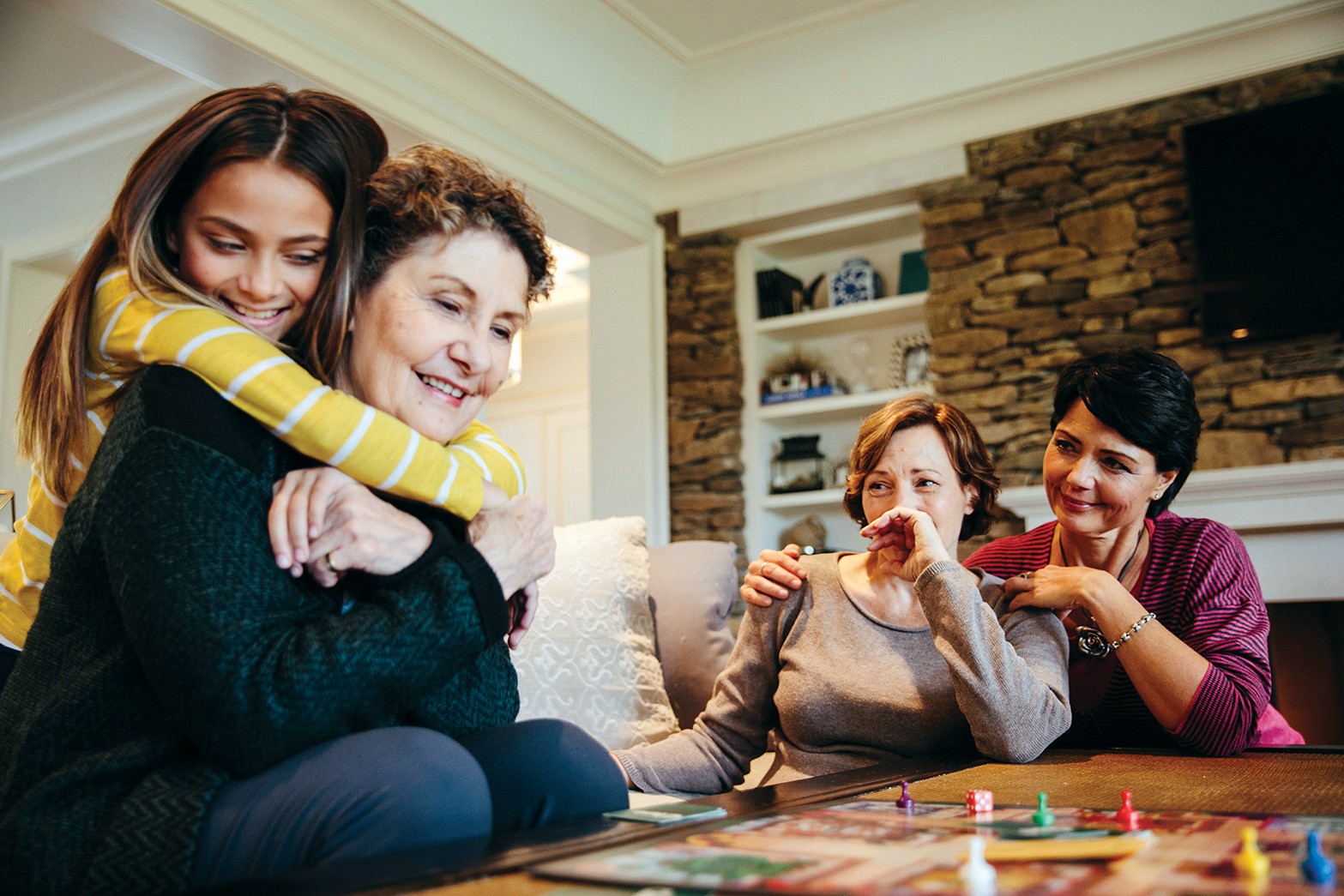March is the Month to Increase Women’s Knowledge of Alzheimer’s Disease

Written by Juliette Bradley
March is National Women’s History Month and March hosts International Women’s Day. Because women are at the epicenter of Alzheimer’s disease — almost two-thirds of Americans living with Alzheimer’s are women and more than 60% of Alzheimer’s and dementia caregivers are women — the Alzheimer’s Association has a timely message for women.
Research studies show that some healthy lifestyle choices can actually decrease the risk of dementia and cognitive decline. Research presented at a recent Alzheimer’s Association International Conference (AAIC) focused on five lifestyle factors that may make a major impact on your cognition. These include:
- Eating a healthy diet. Certain diets, including the Mediterranean diet and other diets designed to help reduce hypertension, have been shown in studies to contribute to risk reduction.
- Exercising for at least two and a half hours of moderate to vigorous physical activity per week. Several studies have shown that engaging in regular cardiovascular exercise that elevates your heart rate and increases blood flow to the brain may reduce the risk of cognitive decline.
- Refraining from smoking. Studies show that smoking in your early to mid-life may be associated with cognitive impairment as early as one’s 40s. Quitting smoking can reduce that risk to levels comparable to those who have not smoked.
- Limiting the use of alcohol. Drinking large amounts of alcohol can increase blood pressure, which can cause issues in cognition and memory.
- Engaging in cognitively stimulating activities. Research has shown that activities such as puzzles and word games can help with maintaining healthy cognition. However, recent studies have shown that staying socially connected is just as, if not more, important.

Women in their 60s are more than twice as likely to develop Alzheimer’s disease over the rest of their lives as they are to develop breast cancer. A woman’s estimated lifetime risk of developing Alzheimer’s at age 65 is 1 in 5. For men, it is 1 in 10. The prevailing view regarding why more women than men have Alzheimer’s or other dementia has been that this discrepancy is due to the fact that women live longer than men on average, and older age is the greatest risk factor for Alzheimer’s. However, there is emerging evidence that suggests there may be unique biological reasons for these differences beyond longevity alone. These biological underpinnings may contribute to the underlying brain changes, progression, and symptom manifestation in Alzheimer’s disease.
A recent study indicates that work and family patterns, which have changed drastically over the last 100 years, may play a role in a woman’s memory decline. Women who participated in the paid labor force between early adulthood and middle age experienced slower memory decline in late life, building on previous research that associates work and education with higher levels of cognitive engagement.
But when it comes to treatment or prevention of Alzheimer’s, what do these studies mean for women? And what about men? Our better understanding of what leads to the imbalance in the prevalence of numbers can give us insights into the risk factors for both sexes and can provide intervention targets for the future. The more we can learn, the better we can design interventions to prevent, detect and treat dementia that are specific to each population.

The responsibilities of caring for someone with dementia often fall to women. Caregivers who are women may experience slightly higher levels of burden, impaired mood, depression, and impaired health than caregivers who are men, with evidence suggesting that these differences arise because female caregivers tend to spend more time caregiving, assume more caregiving tasks, and care for someone with more cognitive, functional and/or behavioral problems. In recent studies among dementia caregivers who indicated a need for individual counseling or respite care, the large majority were women.
The good news is that there are free resources for Alzheimer’s education, support groups and care consultations — all from the Alzheimer’s Association. If you start noticing signs of cognitive decline in yourself or a loved one, the Alzheimer’s Association is the trusted resource for reliable information, education, referral, and support. Call the Alzheimer’s Association 24/7 Helpline at 800.272.3900 and talk to a trained dementia care specialist. You can speak confidentially to learn about the symptoms of Alzheimer’s and other dementias, find out about local programs and services, get general information about legal, financial and care decisions and receive help in your preferred language through our bilingual staff or interpreter service, which accommodates more than 200 languages.
Locally, women can learn more about Alzheimer’s disease by joining AWARE (Alliance of Women for Alzheimer’s Research and Education) — a group of women seeking information, educating one another, and raising awareness and funds for Alzheimer’s care, support, and research. The next AWARE event is “The Heart Remembers Luncheon” on May 9 at Milburn Country Club where Claire Sexton, DPhil, Alzheimer’s Association, Senior Director of Scientific Programs and Outreach, will be the keynote speaker. To learn more about purchasing tickets, contact Joan Cabell at jocabell@alz.org.
The Alzheimer’s Association is volunteer driven. Other ways for women to get involved with the Alzheimer’s Association include training to be a volunteer community educator, support group facilitator, general volunteer or fundraise for Walk to End Alzheimer’s (alz.org/hoawalk) or The Longest Day (alz.org/tld). The Alzheimer’s Association also welcomes community partnerships to strengthen the message that the Alzheimer’s Association is here for all people.






